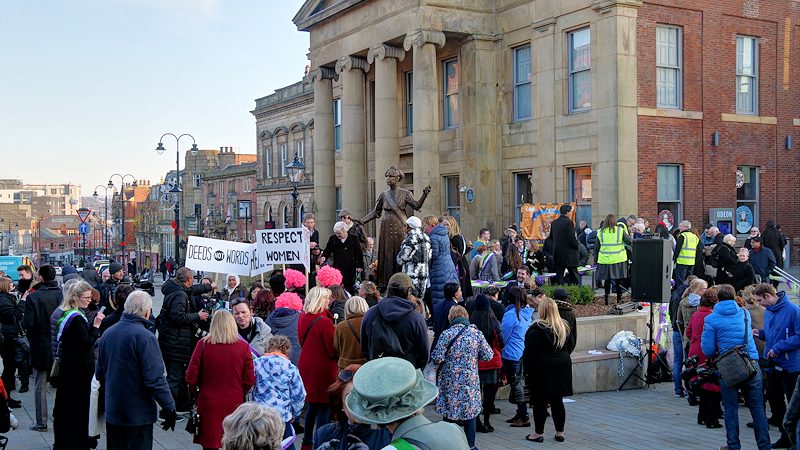'The impact of devolution on our life expectancy is better than expected'

Debbie Abrahams is the Labour MP for Oldham East and Saddleworth
Last week, the Labour Mayor of Greater Manchester Andy Burnham launched his new programme for technical education, the Manchester Baccalaureate. This is just one example of the difference that a Labour mayor can make.
And as we develop our platform for the next General Election, tackling power inequalities must be at its heart.
As a former Public Health consultant, and now a Member of Parliament, I have seen first-hand how health and power inequalities are two sides of the same coin.
For example, research from The King’s Fund identified lack of power as one of the key determinants of driving health inequalities.
This isn’t just hypothetical. A recent analysis published in The Lancet looked at the impact of devolution on health inequalities in Greater Manchester and found that the impact of devolution on our life expectancy was better than expected. Devolution had mitigated against the worst impacts over the last 7 years, from austerity to Covid to the cost of living crisis.
The logic behind this is simple. Giving people more control over their lives makes people more fulfilled. Likewise, giving communities the right to shape their public services enhances their effectiveness.
In Oldham East and Saddleworth, I hear from so many constituents about how they’re fed-up with not being involved in decisions that affects their lives.
That’s why I was really encouraged when at the start of the year, Keir Starmer announced that the next Labour Government will introduce a Take Back Control Bill onto the statute book. This would be a historic transfer of power from Westminster and Whitehall directly to communities. This must set the tone for realising the ‘missions’ that Keir has set out.
As part of this Bill, I hope that this will include the use of Citizens’ Assemblies in actively involving local people in local decisions, but also on national issues. I was an observer at the first national Climate Assembly back in early 2020 and it really was so impressive how people from diverse backgrounds and experiences listened and assimilated expert evidence and then came to a consensus on the recommendations to put to Government.
I see Citizens’ Assemblies as a way to bring that decision-making closer to people.
While political reform is essential, it cannot be divorced from the funding constraints that 13 years of austerity has created. Here in Oldham, £230m of Oldham council’s budget has been cut since 2010, nearly £2 in every £3, but only £44m has been awarded to the borough after many months of crafting and submitting bids to the Government’s Towns and Levelling Up Funds.
Oldham is not the only place to suffer like this. The evidence shows that, perversely, less well off areas were more likely to have suffered worse cuts than more affluent areas. And the impact on the people in these areas is there for all to see.
If we’re really going to level up and address the North-South divide, Labour needs to ensure ‘Fair Funding’ of central Government public money whether that’s for Councils, the Police or Health and Social Care. We also need to ensure we have ‘Evidenced-based Policies’ which address the inequalities across the country, not make them worse. And finally we need ‘Whole Systems Working’ – our lives don’t operate in silos and neither should Government departments.
And as we get closer to a General Election and the publication of our manifesto, I hope that our Take Back Control Bill will set the tone for a Labour Government to devolve even greater powers, including Citizens’ Assemblies, to build back a better, fairer Britain.
To reach hundreds of thousands of new readers and to make the biggest impact we can in the next general election, we need to grow our donor base substantially.
That's why in 2024, we are seeking to generate 150 additional regular donors to support Left Foot Forward's work.
We still need another 124 people to donate to hit the target. You can help. Donate today.



